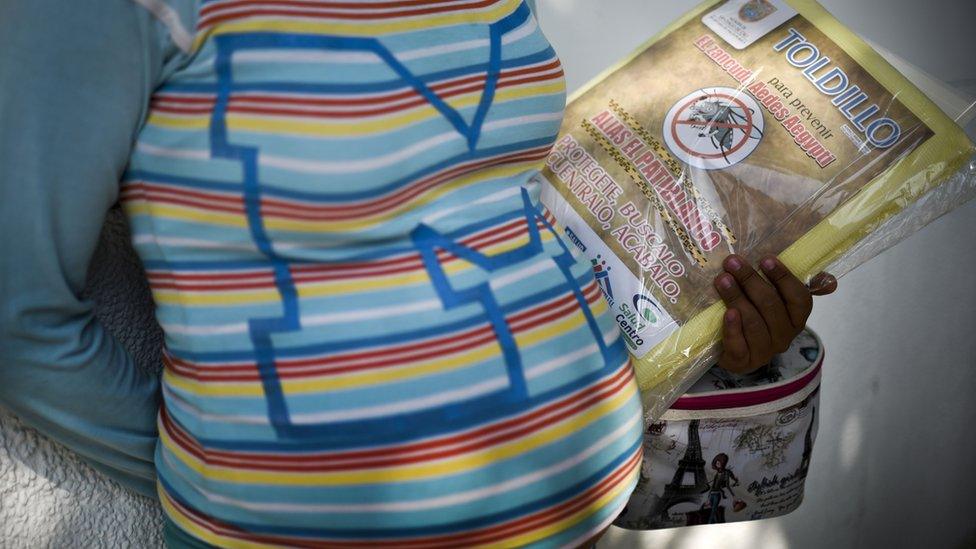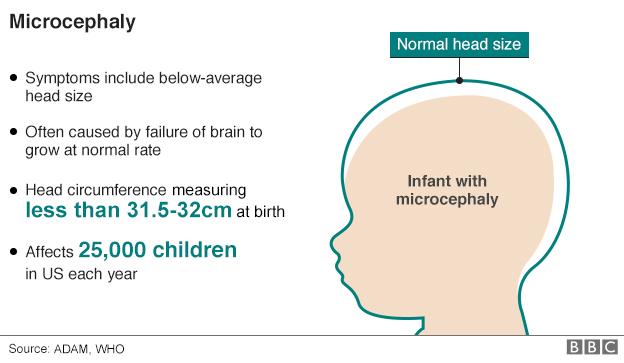Zika virus: 'Strongest evidence yet' of effect on babies
- Published

Authorities in some countries affected by the virus have advised women to delay pregnancy
One of the US's most senior public health officials has revealed the "strongest evidence to date" of the effect on babies of the Zika virus.
Dr Tom Frieden, head of the Center for Disease Control (CDC), was testifying before politicians in Washington.
He said that data from the cases of two infants in Brazil, external who died soon after birth indicated the virus had passed from mother to child.
However, he said the suspected link was still not definite.
There are thought to have been more than 4,000 cases in Brazil alone of babies born with microcephaly - abnormally small brains - and where the transmission of Zika virus from mother to child is suspected of being the cause.
Dr Frieden said intensive research was under way to find out much more about the mosquito-borne virus and to develop a vaccine for it, although he warned that that could still be years away.

"We will likely see significant numbers of [Zika] cases in Puerto Rico and other US territories," Dr Frieden warned.
He said the CDC would issue grants to US states at risk of Zika to better control mosquitoes.
Also on Wednesday, the World Health Organization (WHO), which has called the outbreak a "global public health emergency", issued guidance for women on how to protect themselves, external.
It said that until more is known on whether sexual contact can transmit Zika, "all men and women living in or returning from an area where Zika is present - especially pregnant women and their partners - should be counselled on the potential risks of sexual transmission and ensure safe sexual practices".
"These include the correct and consistent use of condoms, one of the most effective methods of protection against all sexually transmitted infections," the WHO said.
The use of contraception is a controversial issue in the region because of the Catholic Church's stance against it.
However, the Church has rejected calls from liberal Catholics for a softening of its position on the issue in light of the outbreak.
"Microcephaly has been occurring in Brazil for years. They are taking advantage of this moment to reintroduce the abortion topic," Bishop Leonardo Ulrich Steiner, secretary general of the Brazilian Bishops' Conference, told the Estado de Sao Paulo newspaper.
The WHO said it was not advocating travel restrictions to the area but advised pregnant women, or those trying to become pregnant, to seek medical advice before travelling to areas where Zika is present.

More on the Zika crisis:
Microcephaly: Why it is not the end of the world
What you need to know Key questions answered about the virus and its spread
Travel advice Countries affected and what you should do
The mosquito behind spread of virus What we know about the insect
Abortion dilemma Laws and practices in Catholic Latin America

